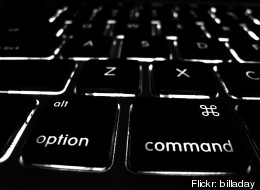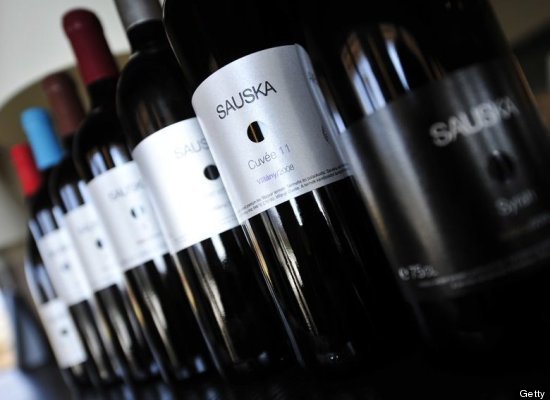
We have had them try to pass previous bills which threatened to censor and erode our rights, but each time the public uproar against those bills has defeated them.
Previous bills to steal our freedom have been named SOPA, PIPA,and now the newest toxic bill named CISPA (Cyber Intelligence Sharing and Protection Act).
Right now, the US is poised to pass this new law that would permit US agents to spy on almost everything we do online. But we can stop them before the final vote.
Companies that we trust with our personal information, like Microsoft, IBM, and Facebook, are key supporters of this bill that lets corporations share all user activity and content with US government agents without needing a warrant in the name of cyber-security, nullifying privacy guarantees for almost everyone around the world, no matter where we live and surf online.
The Cyber Intelligence Sharing and Protection Act, or CISPA, passed the U.S. House of Representatives late Thursday, and now heads to the Senate.
The bill passed the House of Representatives by a vote of 248 to 168, with a Republican majority.
Proponents of the bill, such as Mike Rogers, R-Mich., and Dutch Ruppersberger, D-Md., who introduced it, said the sharing of information would allow the government and the proper agencies to address cyberthreats quickly.
But opponents, including President Obama, say they are worried about consumer privacy and the scope of sharing between the government and independent technology companies.
Obama has threatened to veto the bill. "The administration strongly opposes H.R. 3523, the Cyber Intelligence Sharing and Protection Act, in its current form," Obama's Office of Management and Budget said in a statement earlier this week. "If H.R. 3523 were presented to the president, his senior advisers would recommend that he veto the bill."
Jared Polis, D-Colo., has been particularly outspoken on the measure. "If this bill is enacted, there is nothing to stop companies from sharing their customers' private information with every branch of the government, including the military.
Allowing the military to spy on American citizens, on American soil, goes against every principle this nation stands for," Polis said in a statement.
If enacted, it would increase the information that is shared between the government and technology companies, giving each protection to share confidential information with one another in the interest of warding off cyberthreats.
Previously, this hasn't been the case, government information was classified and companies feared violating antitrust laws.
An online petition to stop the Cyber Intelligence Sharing and Protection Act (CISPA) has reached nearly 800,000 signatures.
The petition, launched on April 5 on Avaaz.org, an online platform for civic organization, describes CISPA as a bill "that would give private companies and the U.S. government the right to spy on any of us at any time for as long as they want without a warrant" and calls on members of congress "to show true global leadership and do all you can to protect our Internet freedom."
Supporters of CISPA say that the bill is intended to help prevent cyber attacks by allowing companies and the government to share information about potential security threats.
The Huffington Post's Gerry Smith explains, many are concerned by the potential implications of the bill:
Privacy and civil liberties groups say the bill's definition of the consumer data that can be shared with the government is overly broad, and once the data is shared, the government could use that information for other purposes, such as investigating or prosecuting crimes, without needing to obtain a warrant. They also criticize the legislation for not requiring companies to make customer information anonymous before sharing it with the government.
With the passage of CISPA, however, the government could share that information with private companies to help them protect their networks. This rightfully angers privacy advocates that companies could share information about its users and its networks with the government.
Unlike the SOPA and PIPA controversies, no major websites have threatened or planned to go dark. However,If enough of us speak out, we can stop companies that profit from our business from supporting cyber-spying.
Just this very moment, due to the public's opposition, CISPA has just lost a powerful backer, with Microsoft withdrawing its support for the controversial cyber security bill saying any law must allow them “to honor privacy promises” they make to their customers.
Microsoft’s change of heart regarding the Cyber Intelligence Sharing and Protection Act (CISPA) follows the United States House of Representatives decision to pass the bill by an overwhelming margin of 248 to 168 on Thursday.
Responding to queries from CNET on Friday, Microsoft said any law must allow "us to honor the privacy and security promises we make to our customers."
The tech giant further added it hopes to "ensure the final legislation helps to tackle the real threat of cybercrime while protecting consumer privacy."
The company had previously lauded the bill as an important “first step towards addressing significant problems in cyber security" when it was first proposed last November.
I just signed a petition telling the Senate to stop the online spying bills. I hope you do, too. Sign the petitions at the links below so that your voices will be heard loud and clear.
Tell the Senate: Stop the online spying bills.
Please Sign the AVAAZ petition
PLEASE ALSO SIGN THIS PETITION FROM CREDO Action.
Various CISPA like bills are under consideration in the Senate. While they differ from CISPA and each other in various ways, they all could potentially sacrifice our online civil liberties in the name of national security.
We need to send a clear message to everyone in the Senate that we won't stand for that.
Senators who are with us need to know their constituents support them. And senators who aren't with us need to be put on notice that their constituents don't want them to sell us out.
Stand up and be counted now before it is too late to protect our privacy and freedom from those who would steal it from WE THE PEOPLE.
Senators who are with us need to know their constituents support them. And senators who aren't with us need to be put on notice that their constituents don't want them to sell us out.
Stand up and be counted now before it is too late to protect our privacy and freedom from those who would steal it from WE THE PEOPLE.














 A nutritional All-Star — one of the best vegetables you can eat. They're loaded with carotenoids, vitamin C, potassium, and fiber. Bake and then mix in some unsweetened applesauce or crushed pineapple for extra moisture and sweetness.
A nutritional All-Star — one of the best vegetables you can eat. They're loaded with carotenoids, vitamin C, potassium, and fiber. Bake and then mix in some unsweetened applesauce or crushed pineapple for extra moisture and sweetness.  Just one cup of mango supplies 100% of a day’s vitamin C, one-third of a day’s vitamin A, a decent dose of blood-pressure-lowering potassium, and 3 grams of fiber. Bonus: mango is one of the fruits least likely to have pesticide residues.
Just one cup of mango supplies 100% of a day’s vitamin C, one-third of a day’s vitamin A, a decent dose of blood-pressure-lowering potassium, and 3 grams of fiber. Bonus: mango is one of the fruits least likely to have pesticide residues. Non-fat, plain Greek yogurt has a pleasant tartness that’s a perfect foil for the natural sweetness of berries, bananas, or your favorite breakfast cereal. It’s strained, so even the fat-free versions are thick and creamy. And the lost liquid means that the yogurt that’s left has twice the protein of ordinary yogurt – about 17 grams in 6 ounces of plain Greek yogurt.
Non-fat, plain Greek yogurt has a pleasant tartness that’s a perfect foil for the natural sweetness of berries, bananas, or your favorite breakfast cereal. It’s strained, so even the fat-free versions are thick and creamy. And the lost liquid means that the yogurt that’s left has twice the protein of ordinary yogurt – about 17 grams in 6 ounces of plain Greek yogurt. It has lots of vitamin C, carotenoids, vitamin K and folic acid. Steam it just enough so that it's still firm and add a sprinkle of red pepper flakes and a spritz of lemon juice.
It has lots of vitamin C, carotenoids, vitamin K and folic acid. Steam it just enough so that it's still firm and add a sprinkle of red pepper flakes and a spritz of lemon juice. The omega-3 fats in fatty fish like salmon can help reduce the risk of sudden-death heart attacks. And wild-caught salmon has less PCB contaminants than farmed salmon.
The omega-3 fats in fatty fish like salmon can help reduce the risk of sudden-death heart attacks. And wild-caught salmon has less PCB contaminants than farmed salmon. 
 All beans are good beans. They’re rich in protein, fiber, iron, magnesium, potassium, and zinc. But garbanzos stand out because they’re so versatile. Just drain, rinse, and toss a handful on your green salad; throw them into vegetable stews, curries, and soups; mix them with brown rice, whole wheat couscous, bulgur, or other whole grains.
All beans are good beans. They’re rich in protein, fiber, iron, magnesium, potassium, and zinc. But garbanzos stand out because they’re so versatile. Just drain, rinse, and toss a handful on your green salad; throw them into vegetable stews, curries, and soups; mix them with brown rice, whole wheat couscous, bulgur, or other whole grains.  Watermelon is a heavyweight in the nutrient department. A standard serving (about 2 cups) has one-third of a day’s vitamins A and C, a nice shot of potassium, and a healthy dose of lycopene for only 80 fat-free, salt-free calories. And when they’re in season, watermelons are often locally grown, which means they may have a smaller carbon footprint than some other fruits.
Watermelon is a heavyweight in the nutrient department. A standard serving (about 2 cups) has one-third of a day’s vitamins A and C, a nice shot of potassium, and a healthy dose of lycopene for only 80 fat-free, salt-free calories. And when they’re in season, watermelons are often locally grown, which means they may have a smaller carbon footprint than some other fruits. 
 Don’t miss out on powerhouse greens like kale, collards, spinach, turnip greens, mustard greens, and Swiss chard. These stand-out leafy greens are jam-packed with vitamins A, C, and K, folate, potassium, magnesium, calcium, iron, lutein, and fiber. Serve with a splash of lemon juice or red wine vinegar.
Don’t miss out on powerhouse greens like kale, collards, spinach, turnip greens, mustard greens, and Swiss chard. These stand-out leafy greens are jam-packed with vitamins A, C, and K, folate, potassium, magnesium, calcium, iron, lutein, and fiber. Serve with a splash of lemon juice or red wine vinegar.  Creamy pistachio nut is my flavor with the magic healing powers of the pistachio nuts. Ice cream is made of cream, milk, eggs, sugar, and flavorings. Ice cream provides nutrients like calcium, phosphorus, potassium, and B vitamins. Recently researchers found that when eaten as part of a healthy diet, ice cream can aid weight loss, as long as you don't overdo it with calories. It may be due to two factors: ice cream contains calcium, which is needed for fat metabolism, and ice cream satisfies food cravings better than most foods, which could reduce binging.
Creamy pistachio nut is my flavor with the magic healing powers of the pistachio nuts. Ice cream is made of cream, milk, eggs, sugar, and flavorings. Ice cream provides nutrients like calcium, phosphorus, potassium, and B vitamins. Recently researchers found that when eaten as part of a healthy diet, ice cream can aid weight loss, as long as you don't overdo it with calories. It may be due to two factors: ice cream contains calcium, which is needed for fat metabolism, and ice cream satisfies food cravings better than most foods, which could reduce binging. 
 Nature has gifted us lots of things to keep our self healthy. One of those gifts is Garlic. There are lots of proverbs about Garlic which reflects its importance such as Garlic is as good as 10 mothers ;
Nature has gifted us lots of things to keep our self healthy. One of those gifts is Garlic. There are lots of proverbs about Garlic which reflects its importance such as Garlic is as good as 10 mothers ;  Past research has shown that red wine may help
Past research has shown that red wine may help 
 We've all heard that a piece of dark chocolate can be good for us,
We've all heard that a piece of dark chocolate can be good for us, 